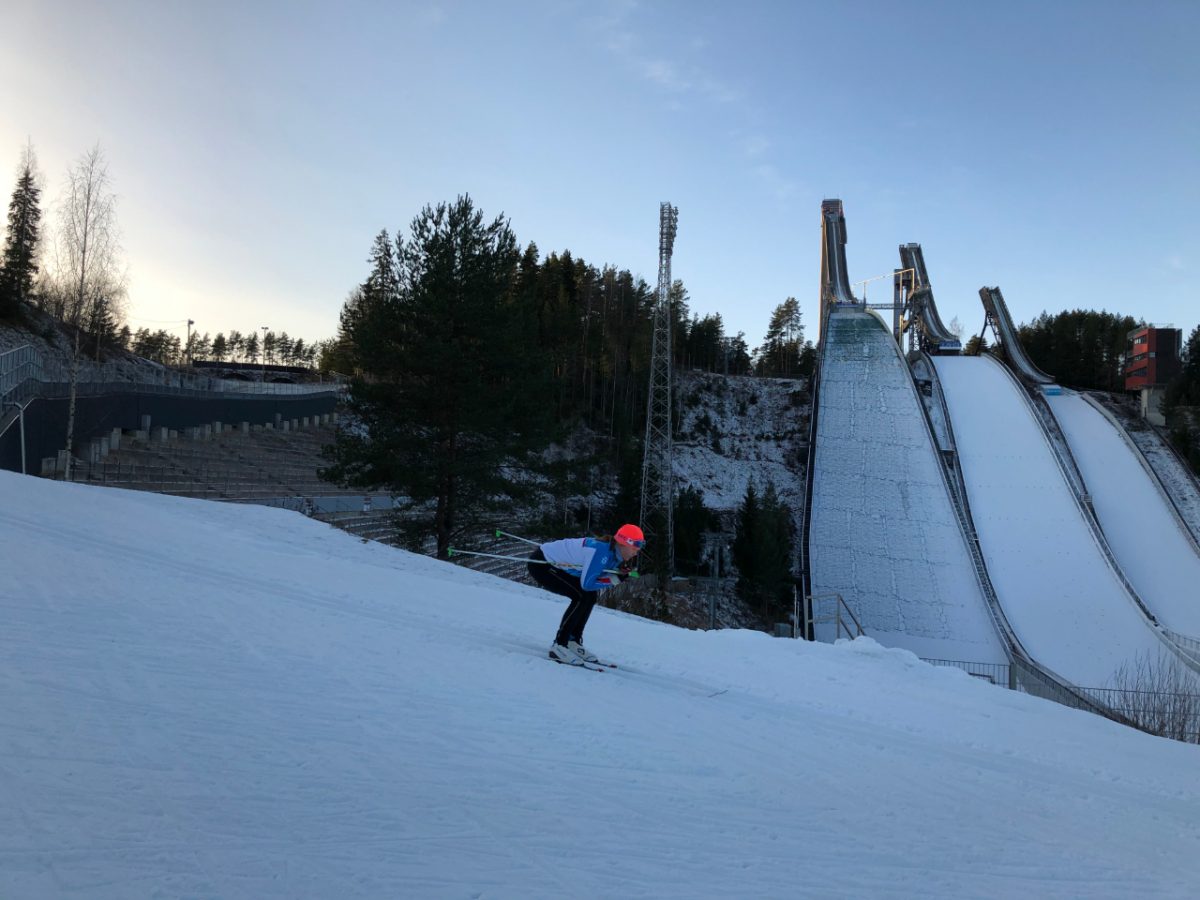This article was originally posted on our Finnish blog, which you can find here.
This is my fourth winter skiing as an adult. I have waited impatiently for the season to arrive since Uusimaa, the city I live in, has suffered from a lack of snow due to heatwaves. So what is it that makes a manager go out skiing—in the rain—over and over again?
What makes a CEO ski in the rain during rush hour?
In January, I got to hear psychologist Tiia Arjanne’s excellent lecture, “Brain and Stress.” It was a surprise to me that trauma and stress tell us the same things, and are close relatives.
This made me think of stress as a serious threat to health. I think the word stress has become a widely cultivated trend word to describe the world of work today. “What’s up?” and then the answer might be something like: “Nothing special, just a bit busy at work and home. I guess I’m a little stressed out.” Does that sound familiar?
After listening to Arianne’s lecture, I realised that when we talk about stress on a psychological or physical level, we are not talking about a trivial matter.
There are both positive and negative effects of stress. In times of positive stress, a little bit of cortisol and adrenaline will sometimes help us perform well.
Stress can also be a negative condition: a condition that can be chronic to the mind as well as the body. To eliminate stress, we need to remove excess cortisol from the body.
Cortisol is a hormone secreted by the adrenal glands. It helps us adjust to stress, but it also causes nasty symptoms if the body’s cortisol levels too high for an extended period of time.
A good way to get rid of cortisol is to cry and sweat. Exercise releases endorphins in the brain, which makes us feel better. This helps relieve stress. When skiing, I find myself calming down because I can’t think of much else. I have to focus on my ski skills only.
As a bonus, I’ve found that my neck, shoulders, and back have become better during the skiing season as a result of the movement and activity.
In traditional skiing, several techniques should be used: herringbone, diagonal stride, double pole and kick double pole. There are other techniques as well, but these basic techniques work well in Oitta.
On weekdays, I often find myself being tired. For this reason, I have noticed that the outside air movement makes me feel good after a busy working day, often with a lot of hours in front of the laptop.
Skiing refreshes the mind as well as the body. On weekends, I try to get out on the slopes quite early and on Saturdays, I practice endurance.
Last, but not least, as a means of managing stress: skiing improves the quality of my sleep. A good night’s sleep is stress management for me at its best. I have been using a sleep and activity tracker for almost two years and so I already have a lot of statistics for my sleeping habits.
As long as I avoid working out too late, the activity tracker rewards a well-trained, recovered and rested body.
Interested in knowing more about what it’s like working in Visma? Visit our career pages.

